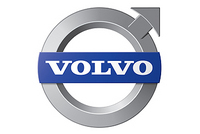Sweden--August 27, 2013: Over a period of three years, emissions from 400 distribution trucks operating in Gothenburg, Sweden, were cut by 30 per cent. Volvo Group (STO:VOLVA) (STO:VOLVB) now wants to share its experience with other cities the world over.
“The most difficult challenge, however, was not to develop new fuels or new vehicle technology but to improve the efficiency of our transport operations”
"With more energy-efficient vehicles, fuels with a lower environmental impact and smarter logistics, it is possible to achieve significant improvements. This project is part of Volvo Group's drive to take the lead in sustainable transport solutions," says Olof Persson, President and CEO of Volvo.
30 per cent lower emissions
In the Climate-Smart City Distribution project, which ended in spring 2013, Volvo Group worked together with a number of partners to improve the efficiency of distribution operations in central Gothenburg. Over the project's three years, climate-impacting emissions from the almost 400 vehicles involved in the study dropped by an average of 30 per cent, in some cases by up to 80 per cent. By replacing conventional diesel distribution trucks with vehicles using three different technologies -- renewable fuels such as biodiesel, biogas and DME, hybrid technology, and methane-diesel fuel --the result was a significant reduction in emissions.
"The most difficult challenge, however, was not to develop new fuels or new vehicle technology but to improve the efficiency of our transport operations," relates Lars Mårtensson, Environmental Director Volvo Trucks.
Success requires coordination
In downtown Gothenburg, Sweden, there are about 6,500 companies that need daily goods distribution services, so with better coordination and more efficient utilisation of existing vehicles both congestion and emissions can be reduced even further.
"In order to fully exploit the available potential, it's not enough for haulage companies to improve their logistics systems; it's equally important that transport purchasers become better at coordinating their purchases, and here there is a whole lot of room for improvement."
Opening up bus lanes to distribution traffic and undertaking more transportation operations when there is less traffic on the roads are other examples of relatively simple measures that can deliver significant environmental benefits.
The problems are the same the world over. Populations are growing, along with the need for transport. This brings with it increasing environmental problems such as congestion, noise, poor air quality and climate impact. However, this trend can be reversed, and together with other partners Volvo Group is working on the development and testing of solutions for next-generation cargo traffic both on inter-city highways and inner-city streets.
"We want to help develop tomorrow's cities and are actively looking for partnerships where we can contribute our expertise and experience. The road ahead goes via closer cooperation between different actors and here we definitely have a role to play, both locally and globally," says Lars Mårtensson.
Facts about the Climate-Smart City Distribution project
The participants were GMV (Chalmers/University of Gothenburg), FordonsGas, Posten Logistik, Preem, Renova, DB Schenker, the Swedish Transport Administration, Volvo Trucks, Business Region Göteborg, DHL, Fraktkedjan Väst and Göteborgs Lastbilscentral
- The project was co-financed by Region Västra Götaland
- More information is available from the project website: Climate Smart City Distribution



